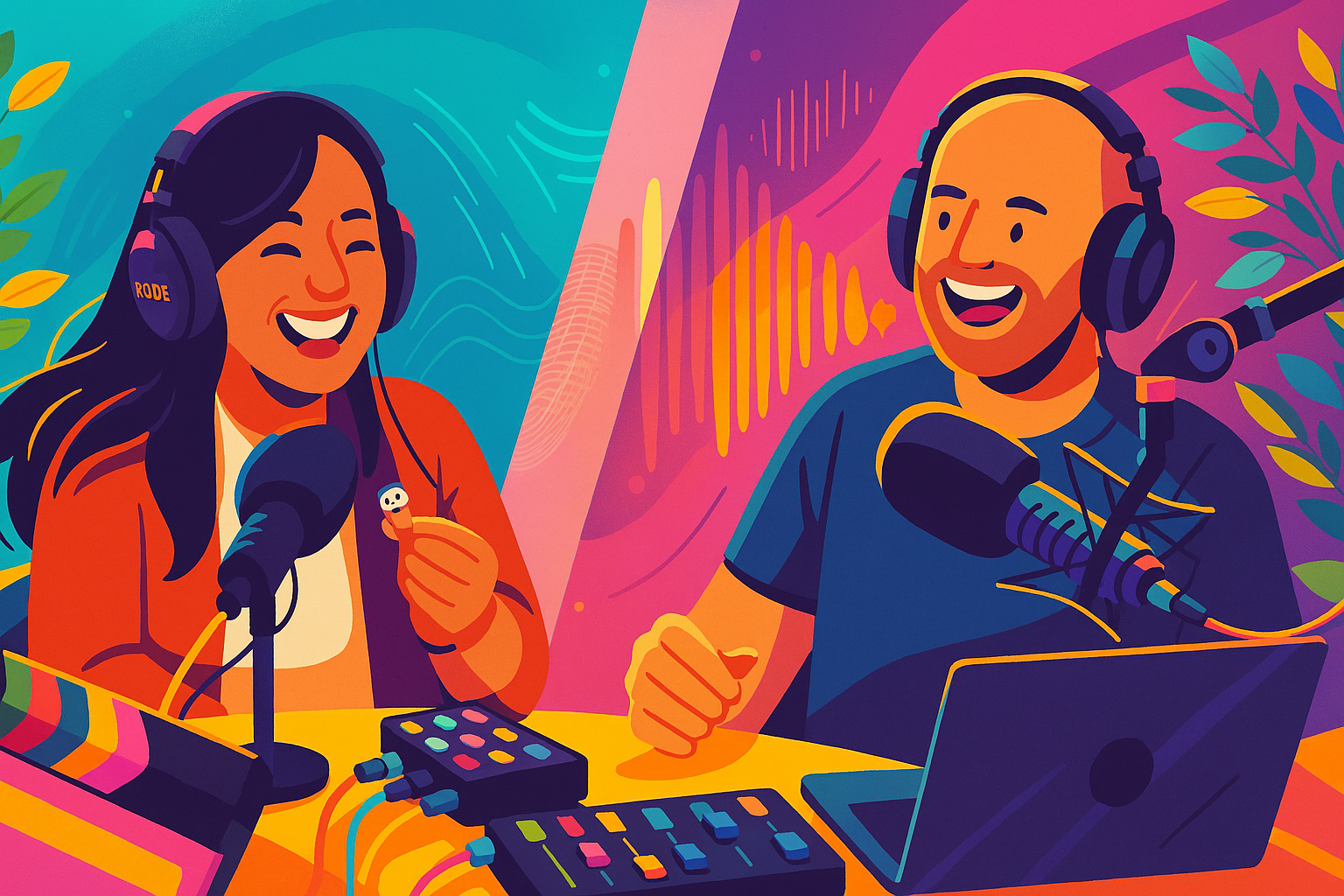Teaching AI in Elementary School: Preparing the Youngest Learners for a Digital Future
What happens when a kindergartener feels more comfortable with an iPad than a pair of scissors? Or when a fourth grader wonders aloud whether Alexa is “watching” them? These are not hypotheticals — they are real stories from today’s classrooms, where the line between technology, childhood, and learning is shifting faster than ever.
In our latest episode of Modem Futura, Andrew Maynard and I were joined by educator Tara Menghini, who has spent more than 25 years teaching technology and computer science to K–6 students. Tara’s perspective is invaluable: she sees firsthand how children engage with digital tools, how myths like the “digital native” mislead us, and why teaching judgment and balance is just as important as teaching coding.
A few highlights from our conversation:
The myth of the digital native. Just because kids swipe naturally on a tablet doesn’t mean they understand how technology works — or the trade-offs it creates. They need explicit guidance and context. As I share in pod, from my own anecdotal experience I’ve found that many students who would be labeled “digital native” are less equipped with the skills of learning how the technology actually works and have been satisfied with just accepting its existence as is without deeper inquiry. While younger generations of students might feel more at home just picking up and using (at face value) a digital technology or service - it is by no means a measure of their understanding or literacy with said technology.
Balancing screens and hands-on learning. Tara described how kids light up when coding off-screen through design-thinking and project-based learning. The goal is not to reject technology, but to show that creativity and problem-solving exist both on and off the screen. Screen time is not a zero-sum game - it can be structured and equally as important, all kids (and adults for that matter) are different and can handle varying levels of interaction (yes, I see you at 11 p.m. on your second hour of doom scrolling…) / finding balance is not an instant win - it might take time to find the right amount. A reminder or tip for fellow parents out there with smaller kids - depending on the platform ( Apple or Google, etc.), there are great parental administration controls to help you enforce and control screen time and content for young learners.
Apple Parental Controls for iPad / iPhone: https://support.apple.com/en-us/105121
Google Parental Controls : https://safety.google/families/parental-supervision/
Digital citizenship starts young. From group chats to online games like Roblox and Minecraft, students face social and ethical challenges earlier than ever. Teaching consent around photos, navigating online friendships, and recognizing privacy trade-offs are essential life skills.
Roblox Parental Controls [website]
Nerdy Birdy Tweets by Aaron Reynolds and Matt Davies (a cautionary tale of impacts of making mistakes online and with social media) [Amazon]
AI in the classroom. While her district limits direct hands-on AI use for students under 13, Tara has found creative ways to teach AI literacy — from classroom debates on “Would you rather read with a human or an AI?” to storybooks that highlight what machines cannot feel or know. This conversation raises many thoughts and ideas - and one of those is the open question as to “when is it appropriate to have students directly engage with various AI tools or platforms”? Certainly not an easy question to ask - as the question itself has many variables that are changing - and not all AI tools are the same. Is it okay to use a generative AI platform to create images for a project or story? What about creating language? Or using voice models to bring a historic figure “back to life” to make learning more engaging? Where do we draw the line - who draws said line, and how do we know when we’ve gone too far?
Parents and teachers as partners. Perhaps most importantly, Tara reminds us that preparing kids for an AI-shaped world isn’t just the job of schools, it will take the literacy village. Parents need to understand the tools their children use, ask questions, and engage in open conversations. Fundamentally this is a societal challenge - and one that cannot be placed squarely on the shoulders of an already taxed educational system.
This episode is as much about the future of learning as it is about the future of being human. Kids today will grow up in a world where AI is a constant presence — but it’s the values we nurture, the skills we model, and the curiosity we encourage that will matter most.
Join the conversation:
We’d love to hear your thoughts: when do you think the most appropriate time for kids to start intentionally engaging with AI is?
If you’d like to dive deeper, jump into the link and listen to the podcast or watch the YouTube video. Join us as we explore the forces shaping our collective future and the urgent need to keep human values at the heart of innovation.
Subscribe and Connect!
Subscribe to Modem Futura on a favorite podcast platform, follow on LinkedIn, and join the conversation by sharing thoughts and questions. The medium may still be the massage, but everyone has a chance to shape how it kneads modern culture—and to decide what kind of global village we ultimately build.
🎧 Apple Podcast: https://apple.co/3KqJ4CJ
🎧 Spotify: https://open.spotify.com/episode/6huSRZQxI8SMUu1ja5BO61?si=pQDBzsqzQTqiWGIcGF5mgg
📺 YouTube: https://youtu.be/d1l_X-7ygbM
🌐 Website: https://www.modemfutura.com/





